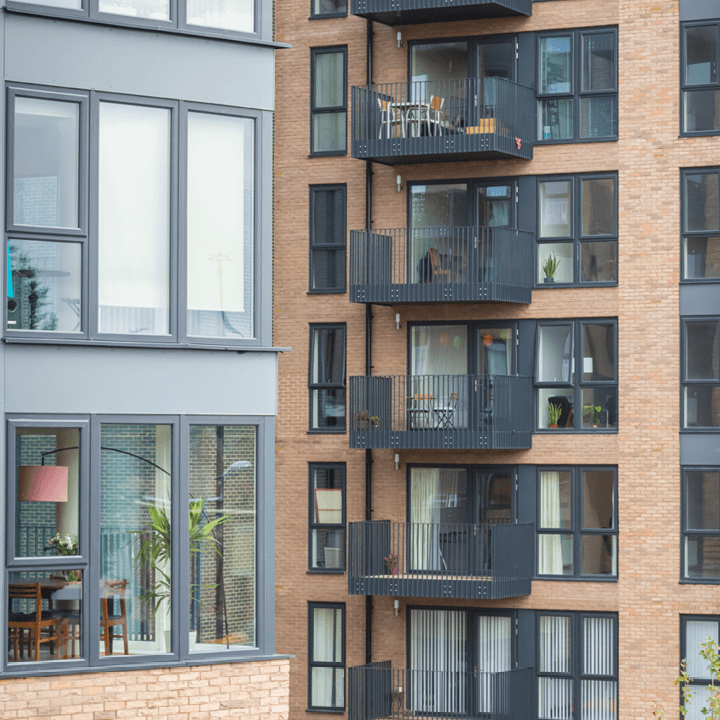R (Manchikalapti & Ors) v Financial Services Compensation Scheme [2022] EWHC 2228 (Admin)
30th September 2022
This case may be of relevance to leaseholders who have purchased defective apartments in developments where they also purchased a “Zurich New Home Warranty”, originally issued by Zurich International Plc, trading as Zurich Building Guarantee and Zurich Municipal (Zurich). Due to the insolvency of East West Insurance Company Limited (EWIC) (the company that Zurich transferred all of the new home warranty policies to in March 2018) claims arising out of these policies will now be paid by the Financial Services Compensation Scheme (FSCS). In this case, the Judge considered the application by the Claimants for a Judicial Review of the decision by the FSCS not to pay out compensation for costs and interest owed to policyholders.

Facts
The Claimants in the case were leaseholders of 30 apartments in a development called New Lawrence House in Hulme, Manchester (the Development). The Development was hopelessly defective, with numerous problems becoming apparent soon after occupation. The defects included missing balconies; no rendering, and a catalogue of fire safety issues. The issues were so serious that in 2017 the fire brigade prohibited the residents from living in the Development due to the dangers.
To obtain funding from lenders to purchase the apartments the owners had purchased a new home warranty in relation to their respective apartments and the common parts. In this case, the new home warranty purchased was a “Standard 10 New Home Structural Defects Insurance Policy” issued by Zurich.
As the defects started to manifest themselves during 2012 and 2013 the Claimants made claims against Zurich under the new home warranties. Zurich refused to pay out and the Claimants issued proceedings on 6 March 2015. On 16 March 2018, and nearly 9 months after the Grenfell disaster, the High Court of the Republic of Ireland allowed the transfer of Zurich’s policies and all liabilities under them to EWIC (a company with limited asset value immediately prior to the transfer). EWIC were subsequently added as the third defendant to the claim.
Zurich and EWIC still refused to pay and unfortunately for the leaseholders the matter ended up in trial. The Judge in the underlying claim [1] gave judgment in the Claimants’ favour and awarded them around £4m, based on the operation of the maximum liability cap (MLC) which was the cumulative purchase price of the apartments whose owners had brought the claim. The Judge held that the total costs of remedial works would be in the region of £9.7m plus VAT and that had it not been for the operation of the MLC, the majority of the remedial work costs would have been recoverable.
The Judge also ordered EWIC to pay interest on the sum of 3.5% per annum from 7 August 2013 to 7 February 2019 and 80% of the Claimants’ costs (to be assessed if not agreed).
In 2019 Zurich and EWIC appealed the decision on numerous grounds. The cumulative impact of their appeal was that the policy did not respond at all. The Claimants cross appealed the decision of the Judge in relation to the operation of the MLC. The Court of Appeal decided that the Claimants were right that the MLC related to all the apartments (not just those that brought the claim) [2] . Zurich and EWIC’s appeals were dismissed in their entirety, with Lord Justice Coulson commenting that:
“As we shall see repeatedly throughout the following Sections of this judgment, what ZIP suggest as the proper interpretation of the words used in their own policy is, on analysis, nothing of the kind, and is instead a strained and artificial construction (often requiring the interpolation of words not present) with the result that it becomes impossible to see any circumstances in which ZIP would ever pay out under the terms of the policy.”
The Court of Appeal referred the claim back to the original Judge and the parties agreed a figure in respect of the remedial works which totalled £9,728,420.63. This sum was paid to the Claimants by EWIC on 2 October 2020. However, within days EWIC entered administration (on 12 October 2020) and as a result the Prudential Regulation Authority also increased the level of protection to building guarantee claims to 100% of the claim (a claim is defined as “a valid claim made in respect of a civil liability: (1) owed by a relevant person; or (2) owed by a relevant person which has been assumed by a successor and which is based on the acts or omissions of the relevant person; under a contract of insurance”). This left the following sums outstanding:
- VAT totalling £1,117,655.37;
- Costs of approximately £3,283,000; and
- 8% interest on the judgment debt totalling £784,331.88.
As a result of EWIC’s administration the claims were referred to the FSCS, a corporate body that was established under the Financial Services and Markets Act 2000 to deal with situations where insurance claims are unlikely to be met by insurers who have entered administration. In these circumstances policyholders can apply to the FSCS for compensation.
In February 2021 the Claimants sent a letter to the FSCS seeking confirmation that they would be compensated for these unpaid claims. The FSCS replied and confirmed that the claim in respect of VAT would be covered by the scheme as it was a protected claim, but refused to pay the interest and costs. They stated in their reply “we do not consider that the liability of an insurer under a policy can be broader than what is covered by the policy wording”. This of course left the leaseholders, through no fault of their own, in a position where they were significantly out of pocket as they had to incur these costs in order to obtain the very indemnity they were entitled to. This decision of the FSCS was the subject of the Judicial Review.
The Judicial Review
The Claimants challenged the decision on the grounds that the FSCS incorrectly interpreted the rules governing payment of compensation under the FSCS. The Claimants advanced the following alternative grounds:
- The application for compensation from the FSCS need only be “in respect of” a claim as defined in the scheme;
- The Claimants’ claim for interest and costs was a claim as defined in the scheme because it was “in respect of” a civil liability owed under a contract of insurance; and
- The interest and costs were owed by EWIC “under” a contract of insurance.
The relief sought by the Claimants was:
- An order that the decision of the FSCS be quashed; and/or
- A declaration that the Claimants be compensated in respect of unpaid costs and interest; and/or
- An order quashing the decision and remitting the matter back to the FSCS with a direction to reconsider the Claimants’ application for compensation.
Conclusion and Relief
Dexter Dias KC, sitting as a High Court Judge, heard the Judicial Review. In a lengthy and detailed judgment, he decided that ground 1 succeeded whilst 2 and 3 failed. His reasoning for the success of ground 1 was that the costs are payable by the FSCS because they are part and parcel of the protected liability under the policy. As the FSCS is a statutory compensation scheme, which is designed to protect policyholders when there is a failure or collapse of insurers, the costs incurred are beyond a protected liability but integrally connected to it. He also decided that the interest on the judgment sum is linked to this and compensable under the scheme.
The Judge addressed the Claimants directly in his judgment stating “This ordeal must have been an enormous strain. In all of this, what have you done wrong? Nothing. You trusted the builders and were let down. You trusted the insurance companies and were let down. When the insurers went into administration, you sought relief from the very compensation scheme created by Parliament to protect the public and you were let down. The Scheme made a decision that you found unfair and inexplicable.”
Mr James Drake KC and Mr Douglas Grant represented the Claimants (instructed by Walker Morris LLP) whilst Mr James Cutress KC and Ms Laurentia De Bruyn represented the Defendants. In the consequentials hearing on 15 September 2022 the FSCS’ application for leave to appeal to the Court of Appeal was refused. However, the FSCS may seek permission to appeal from the Court of Appeal.
[1] Zagora Management Limited & Others v Zurich Insurance Plc & Others [2019] EWHC 140 (TCC)
[2] Manchikalipati & Others v Zurich Insurance Plc (T/A Zurich Building Guarantee & Zurich Municipal) & Others [2019] EWCA Civ 2163






